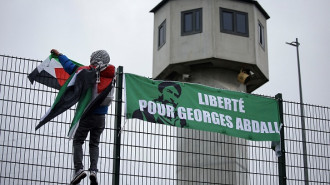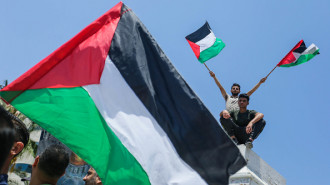Saudi crown prince crackdown stalls Saudi private jet industry
A 2017 crackdown in Saudi Arabia to allegedly tackle corruption has severely damaged the kingdom's private jet industry, a sign of the deep damage the purge has had on private enterprises and the wealthy elite.
Crown Prince Mohammed bin Salman, the 32-year-old son of the king, spearheaded the purge of government and royal family members, as well as business leaders, as he consolidated his grip on power in the kingdom.
Most of the 200 or so detainees were held at the luxury Ritz-Carlton hotel in Riyadh after being arrested in November, with the majority striking monetary settlements in exchange for their freedom.
Dozens of planes owned by individuals and charter companies worth millions of dollars are stranded at airports across the kingdom, sources told Reuters.
Some of the jets were handed over to the Saudi state as part of settlements reached during the purge.
Other grounded jets belong to Saudis who have received travel bans or are reluctant to fly planes because they are wary of displays of wealth which could be interpreted as taunting the government over the anti-corruption crackdown.
"It's not really politically great to be seen flying privately at the moment, particularly owning your own aircraft," VistaJet Chief Commercial Officer Ian Moore told Reuters.
An estimated 70 aircraft remain idle, including Bombardier and Gulfstream jets, sources told Reuters.
The number of registered private jets in Saudi Arabia fell to 129 in December 2018, compared with 136 a year earlier.
Plane manufacturers said the appetite for business jet sales in Saudi Arabia has dropped since the anti-corruption crackdown was launched.
Mohammed bin Salman's purge has shattered investor confidence in the country and contributed to a sense of uncertainty over the controversial young prince's policies.
In the early days of the crackdown more than 17 detainees were hospitalised for physical abuse while a Saudi military officer later died in custody.
Total settlements with the suspects had topped $107 billion in various forms of assets handed over that included property, securities and cash.
Critics have labelled Prince Mohammed's campaign a shakedown and power grab, but authorities insist the purge targeted endemic corruption as the country prepares for a post-oil era.







 Follow the Middle East's top stories in English at The New Arab on Google News
Follow the Middle East's top stories in English at The New Arab on Google News

![Aid Gaza [Getty]](/sites/default/files/styles/image_330x185/public/2010004231.jpeg?h=cb957c44&itok=NpHeiZFt)
